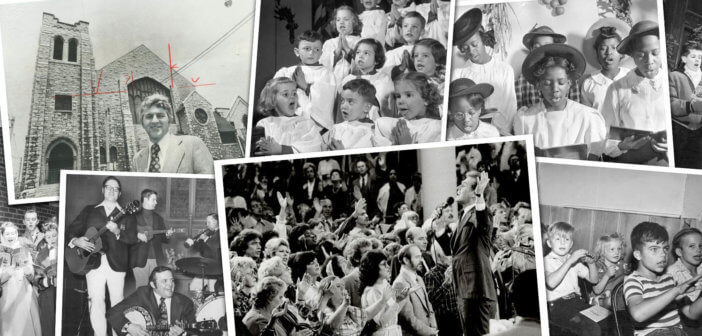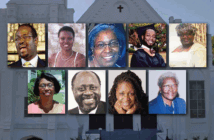Matt Miofsky says that a sentimental longing for the past often distorts a church’s perspective on change and keeps it from seeing new paths. While nostalgia is normal, we need to see it for what it is and not let it keep us from claiming a new future.
The dictionary definition of nostalgia involves a sentimental longing for the past. I will define it a little bit differently. Nostalgia is the art of making the past seem better than it really was. As a retired pastor told me once, “The good ol’ days weren’t that good; they were just old.”
Now there’s nothing wrong with nostalgia, in its proper place. There is nothing unhealthy about being nostalgic about the past as long as you are living in the present and focused on the future. But nostalgia can be a dangerous and seductive temptation. It causes us to trade the potential of the present and the promise of the future for a past that is now only a mirage because we can’t go back there.
Nostalgia distorts our perspective
When we start growing nostalgic, a couple of things can happen. First, our perspective grows distorted. The change we are making suddenly seems less urgent or needed and the past seems not so bad in retrospect. When this happens, we begin to question our judgments, our choices, and ourselves. We begin to question the wisdom of our decision. Did we really think it through? Did we give the past reality a fair chance? Were we too hard on it or too eager to jump into something new? Maybe we should have stuck it out, taken more time to consider our options, or waited until the timing was more favorable. The self-doubting and questioning can go on and on. Such is the effect of misplaced nostalgia.
Nostalgia keeps us from seeing new paths
Second, nostalgia not only keeps us longing for something that cannot be retrieved (and in many cases never was there to begin with) but also keeps us from seeing the new paths that God is opening in front of us. Sometimes, our biggest barrier to future possibilities is the memory of our past. Longing for the way things used to be keeps us from seeing the way things can be. This happens to us as individuals, but I often see it happening in organizations, companies, and churches.
So many churches cannot seem to let go of the way things used to be. Nostalgia keeps them remembering the days when the pews were full, kids roamed the halls, and the offering plates overflowed. They will remember when people used to prioritize church or when the youth group was thriving. Whatever the memory, it is clear they cannot let go of the way things used to be.
The problem with this is twofold. First, after some investigating, churches often find that their memory of past glory is not really accurate. (I have often looked back over church statistics to find that the attendance was never quite at the lofty level they remembered!) Second, but more important, trying to recapture an imagined past only keeps churches from creating a new future. We only have so much attention, energy, passion, and time to commit. The more time we spend looking backward the less time there is to spend looking toward the possibilities of the future. There is a huge difference between the churches in which people use every bit of their available resources and energy living into the future and the churches in which people waste those resources bemoaning a lost past.
Nostalgia prevents staying focused
Fear and nostalgia can prevent us from seeing the possibilities of a better future. You will experience this. It is normal. But when you do face it, you have a choice to make. You can choose to direct your vision and energy to what you are leaving, or you can stay focused on where you are going. The key to staying the course is to keep focused on where God is leading you and why God is leading you there. Keep at the forefront of your mind the reason you decided to make a change, the promise of a new reality, and the sense that God is doing something in and through you, even though you cannot see it.
This material is adapted from Let Go: Leaning into the Future without Fear (Abingdon Press, 2019) by Matt Miofsky. Used by permission. The book is available through Cokesbury or Amazon.
Related Resources
- Leading Ideas Talks Podcast Episode 32: “Becoming a Rapidly Growing Church” featuring Matt Miofsky
- Does Your Faith Community Live out of Memory or Imagination? by Bill Wilson
- Sifting Our Inheritance: What to Keep and What to Let Go by Christine Chakoian
* Photo credits: Toronto Star \ UIG; Carsten / Hulton Archive / Getty Images / Universal Images Group; Three Lions / Hulton Archive / Getty Images / Universal Images Group; Doreen Spooner / Hulton Archive / Getty Images / Universal Images Group; and Douglas Grundy / Hulton Archive / Getty Images / Universal Images Group.






